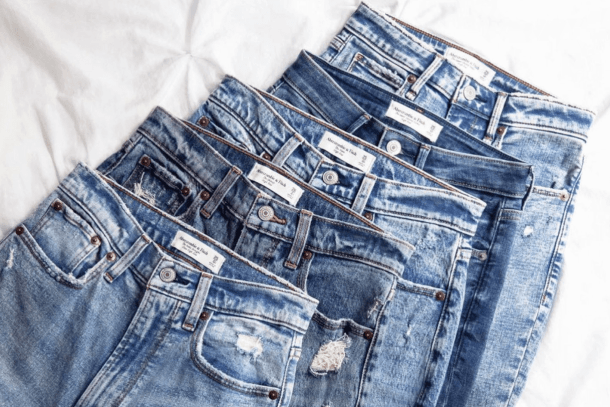
Water
A&F Co. has implemented water stewardship and conservation practices in our operations and across our supply chain.
A&F Co. Strategy

Global Home Offices, Distribution Centers & Stores
A&F Co. works to increase water efficiency where possible in our direct operations. To limit water and energy use, home office teams combine wash loads across brands to sample home launder testing.
And our home office utilizes an automated irrigation system for landscaping to optimize water distribution. Our new and remodeled stores receive low-flow toilets and faucets.
Supply Chain
Garment manufacturing uses a great amount of water, particularly the drying and washing processes. A&F Co. continues to help build the vendors’ monitoring capabilities to reduce environmental impact to the greatest extent possible and comply with all relevant local laws and regulations including proper use and management of chemicals, wastewater, and water quality. As part of our annual social audit, an A&F Co. designated third party will assess compliance with environmental permits, including compliance with wastewater discharge permits.
A&F Co. works with supply chain partners to enhance water-efficient practices, such as using trigger guns, low-flow and shut-off valves to turn off hoses in washing areas when not in use, and utilizing e-flow technology to reduce chemical and water consumption in the washing process. We monitor performance through Higg FEM and Worldly Facility Data Manager (FDM).

Programs & Partnerships
Chemicals
A&F Co. requires its suppliers to properly use, store and dispose of chemicals in the manufacturing process. Our Vendor Code of Conduct specifically requires suppliers to adhere to our Restricted Substance Policy and Restricted Substance List. View our Restricted Substance List.
Recycled Water
In 2023, A&F Co. expanded its corporate goals to aim for 50% recycle water use in our denim laundries and mills by 2028. We partner with our suppliers to upgrade their existing wastewater treatment, including installations reverse osmosis (RO) systems to improve the wastewater treatment quality and recycle the treated wastewater.
Apparel Impact Institute (Aii)
The Apparel Impact Institute (Aii) Carbon Leadership Program (CLP) expanded its scope of work to accelerate water reduction efforts in 2022. As a partner of Aii CLP, technical support is provided to our suppliers to help develop and implement water reduction measures.
Water Reduction in Denim Production
Our denim washhouses use Jeanologia’s Environmental Impact Monitoring (EIM) software to measure water consumption per denim. Jeanologia is the first tool specifically created for the garment industry to measure the impact of laundry and finishing processes.
Pursuant to A&F Co.’s 2023 water intensity reduction goal, we partner with our facilities to develop their water reduction plans in alignment with some of the industry best practices such as process and wastewater reuse, cooling water reuse and use low material liquor ratio (MLR) washing machines.
Wastewater
We require our denim laundries and mills to use the Zero Discharge of Hazardous Chemicals (ZDHC) guideline to ensure discharged wastewater is not polluting the environment. According to the ZDHC Wastewater Guidelines version 2.1, this includes 23 physical and chemical parameters (e.g., temperature, Chemical oxygen demand (COD), 15 heavy metal and 20 chemical groups on the ZDHC MRSL (Manufacturing Restricted Substances List). A&F Co. initiated wastewater testing programs to ensure compliance with ZDHC guidelines in 2021 which continue today.
A&F Co. appointed a ZDHC approved laboratory to collect wastewater samples and conduct the test annually in all denim washhouses and garment dyehouses. Factories’ level of conformance will be rated based on the test results. Factories need to submit a corrective action plan if any parameters are detected exceeding the limit. We will also work with suppliers at risk to identify improvement opportunities, particularly with their chemical management systems.
In 2024, a total of 122 facilities completed ZDHC wastewater testing with 94% compliance.* This includes 100% of our denim washhouses and garment dyehouses and 77% of fabric mills by production volume.
In 2024, 90% of the chemicals used by our laundries and 81% of those used by our fabric mills were ZDHC certified or in compliance with the ZDHC MRSL.
*Compliance refers to test results that meet ZDHC Heavy Metals Wastewater Parameters and Limits, Table 2 and Conventional Parameters and Anions for Wastewater, Table 3 according to ZDHC Wastewater Guidelines Version 2.1.